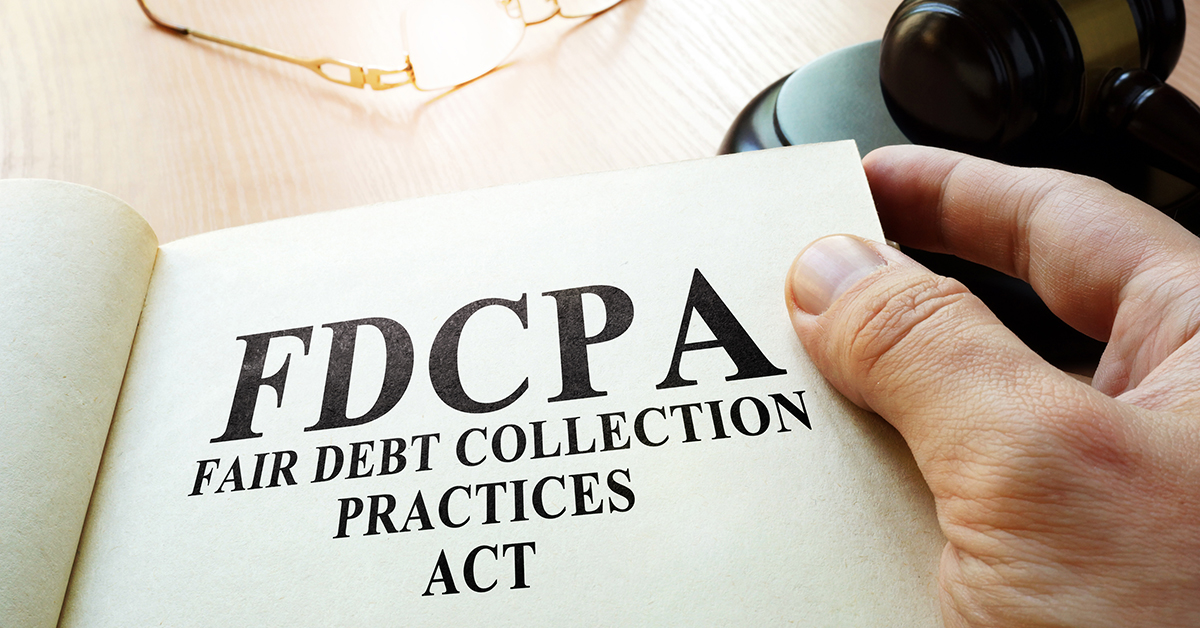Contact from debt collectors can be scary and overwhelming, especially when they begin to call more frequently, contact your family, or threaten you. The Fair Debt Collection Practices Act (FDCPA) was created to stop debt collector harassment and protect Americans from unfair and abusive collection tactics.
Here’s what collectors can and can’t do, and what you can do to get the calls to stop.
FDCPA Violations
The FDCPA provides guidelines that debt collectors are required to follow when they contact you about your household debt. This may be debt from medical bills, utilities, a loan, or credit cards.
Under the FDCPA, debt collectors are not allowed to harass, intimidate, abuse, or threaten you. They can’t threaten IRS reporting or a lawsuit if it’s untrue. You also can’t go to jail for owing money. Collectors should only contact you between 8am and 9pm, unless you give them permission to do otherwise, and they can’t contact family members or friends and discuss your debt.
Debt collectors also cannot:
- Continue to contact you after you write to them and ask that they stop
- Contact you after you’re being represented by an attorney
- Tell you false information about the debt, like exaggerating the amount
- Fail to tell you that they are a collector
- Say they work for a credit bureau or give incorrect information about your debt to a credit bureau
- Fail to report a disputed debt as disputed to the credit bureaus
- Call your cell phone without permission
- Place private and personal information in a visible area on a mailing envelope
- Threaten wage garnishment, which is illegal in Pennsylvania
- Continue trying to collect after you file for bankruptcy
If a debt collector violates any of your rights, you may be able to sue, and the collector will be responsible for the cost.
How Do I Get Debt Collectors to Stop Calling?
You can get a collector to stop contacting you if you write a cease and desist letter. Under the FDCPA, the collector is required to stop calling. Keep in mind that this does not mean the debt no longer exists. The debt may be assigned to a new collector to begin collection effors.
If the debt seems incorrect or inaccurate, be sure to make the debt collector aware of this. Write and request validation of the debt. If you disagree with the collector’s calculation, send documentation that proves you paid or states why you don’t owe the amount that they claim. You should always send correspondence through certified mail with a return receipt so that you always have proof that they received your information.
Seek Free Legal Help
Flitter Milz is a nationally recognized consumer protection law firm that represents victims of abusive collection tactics. Contact Us for a free legal evaluation.

 Co-signers lend their names and good credit histories to the primary borrower, usually when the other borrower cannot obtain credit on his or her own. For example, a parent may co-sign for a child who does not yet have a credit history. Or, someone may be asked to co-sign by a friend or relative whose credit is tarnished, has negative marks in their credit history, or a low
Co-signers lend their names and good credit histories to the primary borrower, usually when the other borrower cannot obtain credit on his or her own. For example, a parent may co-sign for a child who does not yet have a credit history. Or, someone may be asked to co-sign by a friend or relative whose credit is tarnished, has negative marks in their credit history, or a low  Flitter Milz is a nationally recognized consumer protection law firm representing people in matters against lenders, debt collectors and the credit bureaus. Whether you or the co-borrower has fallen behind on payments or not,
Flitter Milz is a nationally recognized consumer protection law firm representing people in matters against lenders, debt collectors and the credit bureaus. Whether you or the co-borrower has fallen behind on payments or not, 







